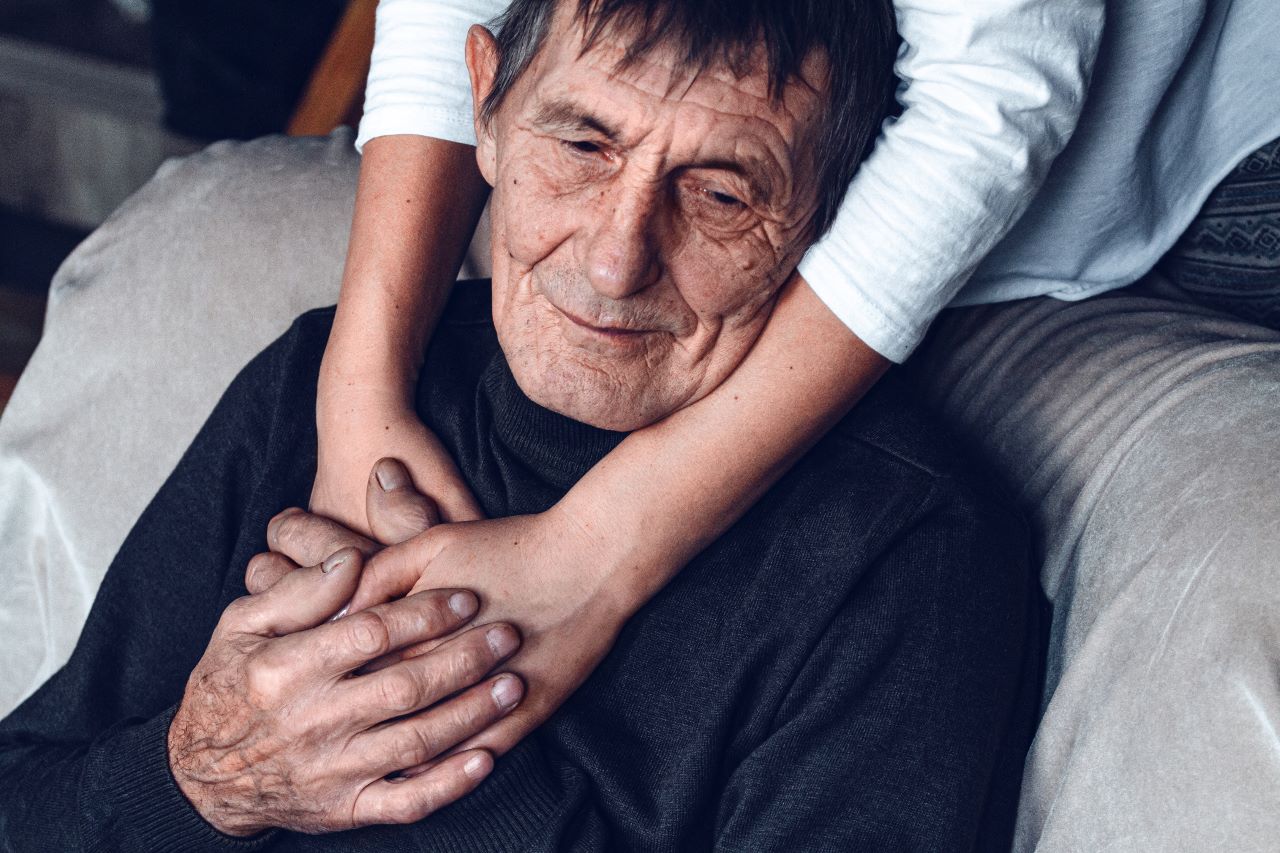
When families reach out to us, it’s often because they are navigating the challenging waters of an aging parent’s difficult moods, paranoia, or confusing behaviour. Witnessing anxiety in elderly parents can be incredibly draining and upsetting, leaving you feeling overwhelmed and unsure of how to proceed.
But you’re not alone. In our experience providing care and support to families, there are compassionate and effective ways to manage and soothe your elderly loved one’s anxiety. Here are six key strategies to consider when addressing anxiety in elderly parents.

Understanding anxiety in elderly parents
Try to understand their feelings
Persistent worry or fear in older adults can weigh heavily on them. For many, the gradual loss of independence and the need to rely more on others can be a source of deep anxiety. Refusing help may be their way of holding onto control or expressing a need for your attention. By understanding and acknowledging your elderly parent’s feelings, you can foster better communication and offer reassurance.
Rule out underlying cognitive impairment
It’s essential to determine if cognitive issues such as dementia or memory loss are contributing to your loved one’s behaviour. These conditions can significantly impact how you communicate and may deepen their anxiety. A geriatric assessment, arranged through a healthcare provider, can help identify any underlying neurological issues. Learn more about the signs of cognitive impairment here.
Managing cognitive impairment and anxiety
Check medication interactions
Review all medications, including prescriptions, over-the-counter drugs, vitamins, and supplements. Some medications can have side effects or interactions that exacerbate anxiety or cause behavioural changes. Being vigilant about these interactions can help alleviate unnecessary anxiety in your elderly parent. Check for common medication interactions here.
Addressing sleep issues in seniors
Investigate sleep deprivation
Sleep deprivation can amplify anxiety, especially in older adults. Encourage good sleep hygiene by promoting regular exercise, limiting naps, having larger meals earlier in the day, and establishing a calming bedtime routine. Ensuring that anxiety or anti-depression medications are not disrupting sleep is also vital in managing anxiety in elderly parents.
Therapy options for elderly anxiety
Consider therapy, acknowledge generational challenges
Older generations might find discussing mental health and seeking therapy unusual or uncomfortable. However, therapy can be beneficial in addressing long-standing anxiety. When discussing this option, treat your parent with respect and as the adult they are, which can help them feel more open to the idea of therapy.
Pick your battles and foster positive emotions
Your elderly parent may be more receptive to change if they don’t feel overwhelmed by too many concerns at once. Prioritize the most critical issues and introduce changes gradually. Sometimes, the best approach is to offer support and be ready to step in when necessary. Ensuring they feel heard and loved can often provide more comfort than reasoning alone.
How Home Care can help elderly parents with anxiety
Home care services can be a tremendous support for families dealing with anxiety in elderly parents. Professional caregivers offer companionship, assist with daily tasks, and provide emotional support tailored to your loved one’s needs. With the help of home care, elderly parents can feel more secure and less anxious, while family members gain peace of mind knowing their loved one is in caring hands. This additional support can make a significant difference in improving the overall well-being and quality of life for both elderly parents and their families.
Explore our home care services to see how we can assist your loved ones. By embracing these strategies, you can better support your elderly parent, helping them feel more secure and less anxious in their daily life. Contact us for more information on how we can help.